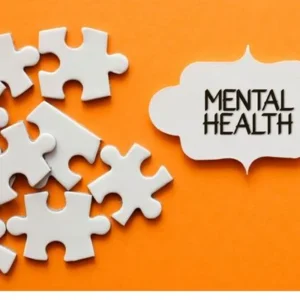India faces a mounting mental health crisis, with nearly 197 million people—about one in seven—living with some form of mental disorder, according to the Global Burden of Disease study. Depression and anxiety alone affect over 90 million individuals, yet access to professional support remains extremely limited, leaving a significant portion of the population without adequate care.
The Indian government has introduced major initiatives to improve access, including the National Mental Health Programme (NMHP), the Mental Healthcare Act 2017, the Tele-MANAS and KIRAN helplines, and upgraded medical colleges. Despite these efforts, a wide treatment gap persists, compounded by an acute shortage of trained professionals and limited funding, which continues to hinder meaningful progress in addressing mental health needs.
India’s mental health workforce is severely under-resourced. With just 0.75 psychiatrists per 100,000 people, the country falls well below the WHO’s recommended standard of 1.7. A 2023 report indicated only 9,000 practising psychiatrists nationwide, whereas India needs at least 36,000 to meet minimal requirements. The shortage extends to psychologists and social workers, with only 4,309 clinical psychologists and 801 rehabilitation social workers, among the largest shortfalls globally.
Government programs have expanded infrastructure and services, including the District Mental Health Programme active in 767 districts, providing outpatient care, counselling, medicines, and inpatient facilities. Over 175,000 Sub-Health Centres and Primary Health Centres have been upgraded to include mental health services. Centers of Excellence and 47 government-run mental hospitals, including three national institutes, are providing specialized care, and digital academies have trained over 42,000 professionals to improve service delivery. Additionally, mental health procedures are included under the Ayushman Bharat PM-JAY scheme, with over 77,600 admissions authorized.
Private sector and AI-driven platforms are increasingly bridging service gaps. Startups and tech platforms like Lissun, Wysa, Amaha, TalktoAngel, BetterLYF, and HopeQure provide digital therapy, AI-assisted support, and hybrid in-person care. Specialized services are also emerging for multilingual, LGBTQ+ inclusive, and hospital-integrated care, while workplace wellness providers and healthtech companies such as Practo and MediBuddy now offer online consultations.
Despite rising demand, public funding remains low, with only ₹1,004 crore allocated to mental health in FY 2024–25—just 1% of the Ministry of Health and Family Welfare’s budget. Private and philanthropic contributions are growing, but sustainable funding is still a major challenge. Experts recommend scaling up the workforce, expanding telehealth services, increasing psychiatry and psychology seats (especially in rural areas), raising public funding and insurance coverage, strengthening community-based care, and improving data for evidence-based planning.
World Mental Health Day 2025, observed on October 10, emphasizes the theme “Access to services—mental health in catastrophes and emergencies,” highlighting the urgent need for resilient and inclusive mental health systems in India. This underscores the importance of crisis-ready services, psychological first aid, and telehealth continuity, particularly in under-resourced regions where millions remain underserved.





